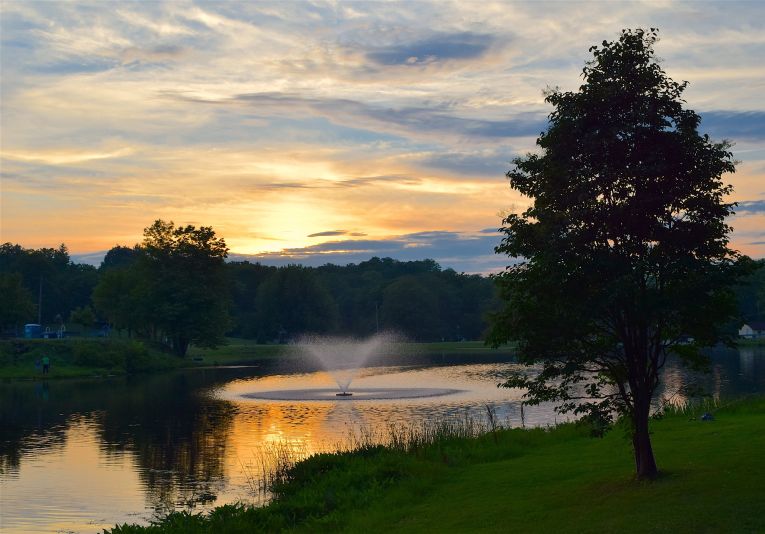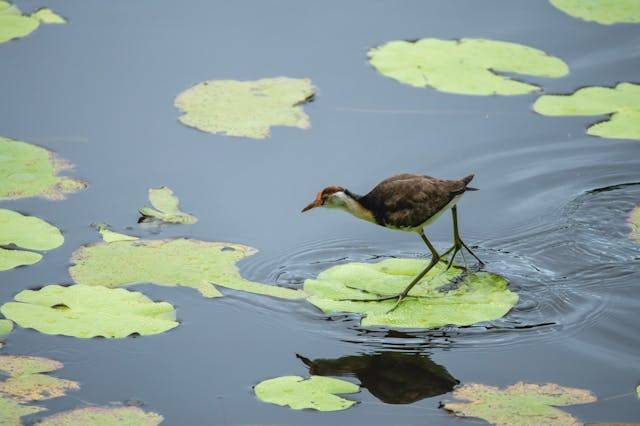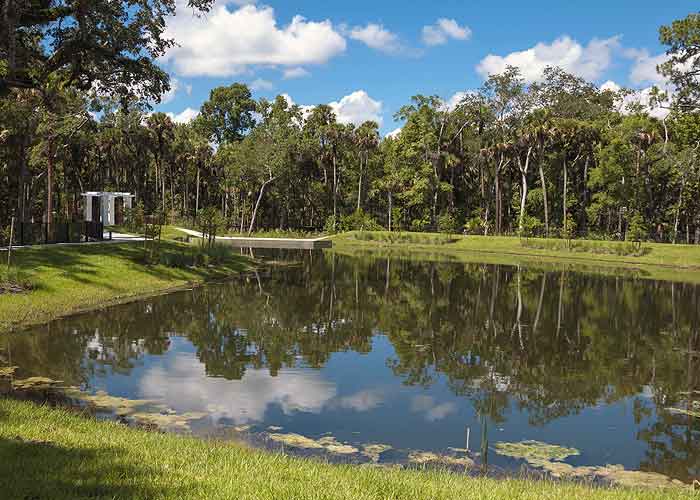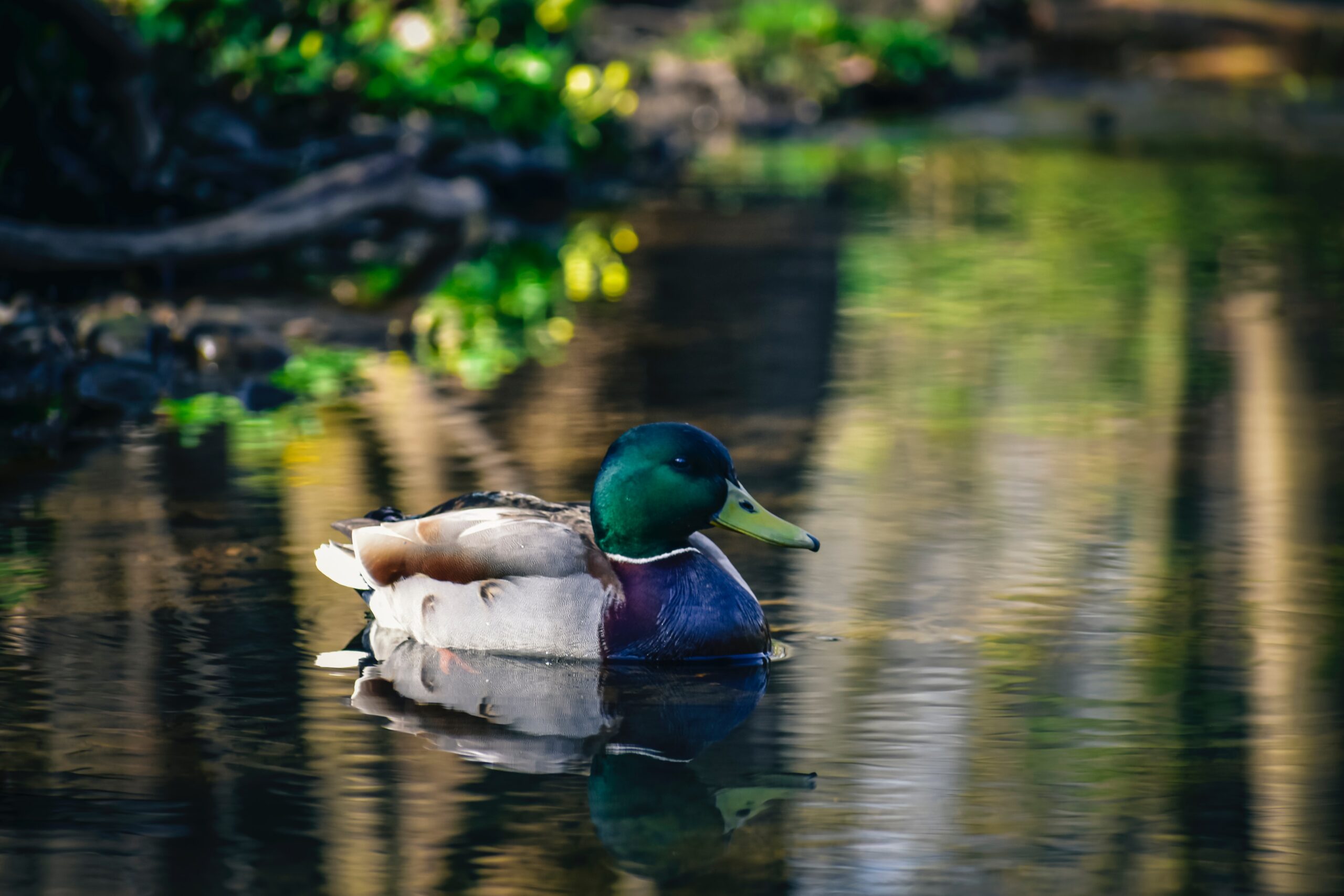As the crisp air of fall gives way to the icy chill of winter in Monroe County and Western NY area, many pond owners believe their pond maintenance responsibilities are over for the season. However, nothing could be further from the truth. Winter pond maintenance is just as crucial as the care your pond receives during the warmer months. Without proper preparation, your pond may face a host of problems when spring arrives. By maintaining a consistent winter care routine, you’ll ensure your pond stays healthy and vibrant all year round.
Protecting Your Pond’s Ecosystem Through Winter
During the colder months, a pond’s ecosystem is far from dormant. The microorganisms, plants, and even fish still require care, albeit in different ways than during the summer. As temperatures drop, pond owners must ensure the balance of oxygen and nutrients remains steady.

Without proper maintenance, oxygen levels can deplete, and trapped gases from decomposing organic matter can lead to toxicity. A pond inspection checklist in winter should include ensuring that your pond’s oxygenation system is working correctly, such as using a pond aerator or de-icer to keep a hole in the ice for gas exchange. This simple action prevents harmful gases from building up under the ice, maintaining a safe environment for your fish and plants.
Avoiding Ice Damage and Water Stagnation
In Rochester, winter can bring extended periods of freezing temperatures, and ice formation can be a major concern for pond health. When ice covers the surface completely, it can cut off the oxygen supply to the pond, potentially suffocating fish and disrupting the entire ecosystem. A solid ice layer can also cause stagnation, trapping debris and organic material at the bottom. A pond inspection checklist for winter maintenance should include ensuring that you have a reliable de-icer or pond heater in place. These devices help keep a small section of your pond free from ice, allowing for proper oxygen exchange and preventing water from becoming stagnant.
Fish Care During Cold Months
Many pond owners are unaware that their fish still need attention during the winter. While the metabolism of cold-water fish like koi and goldfish slows down in colder temperatures, they still require adequate care. A common misconception is that fish can be left completely alone until spring, but neglecting their needs can lead to serious issues. When performing your winter pond inspection, ensure your fish are not stressed or overcrowded, and make sure they have enough space to swim in water that is not completely frozen. The water temperature must stay above freezing, so if you don’t already have one, investing in a pond heater or aerator can make a significant difference in maintaining the necessary water conditions.
Preventing Springtime Pond Problems
One of the biggest advantages of winter pond maintenance is preventing problems that could arise when the warmer months return. If fallen leaves, plant debris, or fish waste are left to decompose under the ice, they can cause poor water quality when spring comes. As the ice melts, this decaying organic matter can release toxins into the water, creating an unpleasant environment for your pond’s inhabitants. Using a pond inspection checklist in the winter to clear debris and maintain your filtration system ensures that your pond’s ecosystem is ready for the transition from cold to warm weather without encountering these common springtime problems.
Preparing Your Pond Equipment for Spring
While your pond’s ecosystem is your primary focus during the winter months, your pond equipment also requires attention. Winter is the perfect time to inspect and store any equipment that will not be in use until spring, such as pumps, filters, and fountains. A pond inspection checklist should include cleaning and properly storing these items to prevent damage from freezing temperatures. Regular maintenance and early inspection of your pond equipment can help ensure everything is in working order when it’s time to reopen the pond in the spring.
Winter pond maintenance may not always be as obvious as the tasks required during the summer, but it plays a critical role in maintaining a healthy pond. By incorporating a winter pond inspection checklist into your seasonal care routine, you’ll prevent many common problems and ensure that your pond is ready to thrive come spring. Whether you’re managing fish health, preventing ice damage, or preparing your equipment for the warmer months, winter care ensures your pond stays beautiful and functional all year long.





